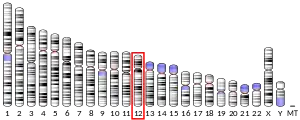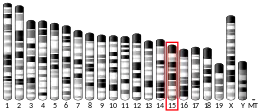| KRT81 | |||||||||||||||||||||||||||||||||||||||||||||||||||
|---|---|---|---|---|---|---|---|---|---|---|---|---|---|---|---|---|---|---|---|---|---|---|---|---|---|---|---|---|---|---|---|---|---|---|---|---|---|---|---|---|---|---|---|---|---|---|---|---|---|---|---|
| Identifiers | |||||||||||||||||||||||||||||||||||||||||||||||||||
| Aliases | KRT81, HB1, Hb-1, KRTHB1, MLN137, ghHkb1, hHAKB2-1, keratin 81, K81 | ||||||||||||||||||||||||||||||||||||||||||||||||||
| External IDs | OMIM: 602153 MGI: 1928858 HomoloGene: 55645 GeneCards: KRT81 | ||||||||||||||||||||||||||||||||||||||||||||||||||
| |||||||||||||||||||||||||||||||||||||||||||||||||||
| |||||||||||||||||||||||||||||||||||||||||||||||||||
| |||||||||||||||||||||||||||||||||||||||||||||||||||
| |||||||||||||||||||||||||||||||||||||||||||||||||||
| |||||||||||||||||||||||||||||||||||||||||||||||||||
| Wikidata | |||||||||||||||||||||||||||||||||||||||||||||||||||
| |||||||||||||||||||||||||||||||||||||||||||||||||||
Keratin, type II cuticular Hb1 is a protein that in humans is encoded by the KRT81 gene.[5][6][7]
The protein encoded by this gene is a member of the keratin gene family. As a type II hair keratin, it is a basic protein which heterodimerizes with type I keratins to form hair and nails. The type II hair keratins are clustered in a region of chromosome 12q13 and are grouped into two distinct subfamilies based on structure similarity. One subfamily, consisting of KRTHB1, KRTHB3, and KRTHB6, is highly related. The other less-related subfamily includes KRTHB2, KRTHB4, and KRTHB5. All hair keratins are expressed in the hair follicle; this hair keratin, as well as KRTHB3 and KRTHB6, is found primarily in the hair cortex. Mutations in this gene and KRTHB6 have been observed in patients with a rare dominant hair disease, monilethrix.[7]
References
- 1 2 3 GRCh38: Ensembl release 89: ENSG00000205426 - Ensembl, May 2017
- 1 2 3 GRCm38: Ensembl release 89: ENSMUSG00000067615 - Ensembl, May 2017
- ↑ "Human PubMed Reference:". National Center for Biotechnology Information, U.S. National Library of Medicine.
- ↑ "Mouse PubMed Reference:". National Center for Biotechnology Information, U.S. National Library of Medicine.
- ↑ Rogers MA, Nischt R, Korge B, Krieg T, Fink TM, Lichter P, Winter H, Schweizer J (Nov 1995). "Sequence data and chromosomal localization of human type I and type II hair keratin genes". Exp Cell Res. 220 (2): 357–62. doi:10.1006/excr.1995.1326. PMID 7556444.
- ↑ Schweizer J, Bowden PE, Coulombe PA, Langbein L, Lane EB, Magin TM, Maltais L, Omary MB, Parry DA, Rogers MA, Wright MW (Jul 2006). "New consensus nomenclature for mammalian keratins". J Cell Biol. 174 (2): 169–74. doi:10.1083/jcb.200603161. PMC 2064177. PMID 16831889.
- 1 2 "Entrez Gene: KRT81 keratin 81".
Further reading
- Coulombe PA, Omary MB (2002). "'Hard' and 'soft' principles defining the structure, function and regulation of keratin intermediate filaments". Curr. Opin. Cell Biol. 14 (1): 110–22. doi:10.1016/S0955-0674(01)00301-5. PMID 11792552.
- Langbein L, Schweizer J (2005). "Keratins of the human hair follicle". Int. Rev. Cytol. International Review of Cytology. 243: 1–78. doi:10.1016/S0074-7696(05)43001-6. ISBN 9780123646477. PMID 15797458.
- Tomasetto C, Régnier C, Moog-Lutz C, et al. (1996). "Identification of four novel human genes amplified and overexpressed in breast carcinoma and localized to the q11-q21.3 region of chromosome 17". Genomics. 28 (3): 367–76. doi:10.1006/geno.1995.1163. PMID 7490069.
- Bowden PE, Hainey S, Parker G, Hodgins MB (1995). "Sequence and expression of human hair keratin genes". J. Dermatol. Sci. 7 Suppl: S152–63. doi:10.1016/0923-1811(94)90046-9. PMID 7528047.
- Winter H, Rogers MA, Gebhardt M, et al. (1998). "A new mutation in the type II hair cortex keratin hHb1 involved in the inherited hair disorder monilethrix". Hum. Genet. 101 (2): 165–9. doi:10.1007/s004390050607. PMID 9402962. S2CID 20555394.
- Bowden PE, Hainey SD, Parker G, et al. (1998). "Characterization and chromosomal localization of human hair-specific keratin genes and comparative expression during the hair growth cycle". J. Invest. Dermatol. 110 (2): 158–64. doi:10.1046/j.1523-1747.1998.00097.x. PMID 9457912.
- Winter H, Labrèze C, Chapalain V, et al. (1998). "A variable monilethrix phenotype associated with a novel mutation, Glu402Lys, in the helix termination motif of the type II hair keratin hHb1". J. Invest. Dermatol. 111 (1): 169–72. doi:10.1046/j.1523-1747.1998.00234.x. PMID 9665406.
- Rogers MA, Winter H, Langbein L, et al. (2000). "Characterization of a 300 kbp region of human DNA containing the type II hair keratin gene domain". J. Invest. Dermatol. 114 (3): 464–72. doi:10.1046/j.1523-1747.2000.00910.x. PMID 10692104.
- Strausberg RL, Feingold EA, Grouse LH, et al. (2003). "Generation and initial analysis of more than 15,000 full-length human and mouse cDNA sequences". Proc. Natl. Acad. Sci. U.S.A. 99 (26): 16899–903. Bibcode:2002PNAS...9916899M. doi:10.1073/pnas.242603899. PMC 139241. PMID 12477932.
- Nishikawa J, Kiss C, Imai S, et al. (2003). "Upregulation of the truncated basic hair keratin 1(hHb1-DeltaN) in carcinoma cells by Epstein-Barr virus (EBV)". Int. J. Cancer. 107 (4): 597–602. doi:10.1002/ijc.11289. PMID 14520698. S2CID 2569578.
- Colland F, Jacq X, Trouplin V, et al. (2004). "Functional proteomics mapping of a human signaling pathway". Genome Res. 14 (7): 1324–32. doi:10.1101/gr.2334104. PMC 442148. PMID 15231748.
- Gerhard DS, Wagner L, Feingold EA, et al. (2004). "The status, quality, and expansion of the NIH full-length cDNA project: the Mammalian Gene Collection (MGC)". Genome Res. 14 (10B): 2121–7. doi:10.1101/gr.2596504. PMC 528928. PMID 15489334.
- Rual JF, Venkatesan K, Hao T, et al. (2005). "Towards a proteome-scale map of the human protein-protein interaction network". Nature. 437 (7062): 1173–8. Bibcode:2005Natur.437.1173R. doi:10.1038/nature04209. PMID 16189514. S2CID 4427026.




